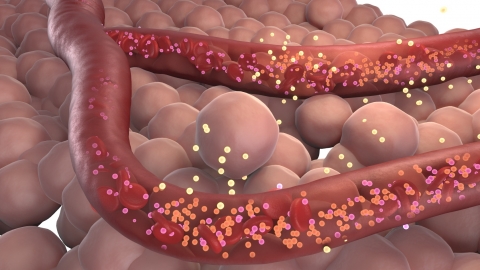What to do about insulin resistance
Generally, insulin resistance may be caused by genetic factors, obesity, polycystic ovary syndrome, non-alcoholic fatty liver disease, type 2 diabetes, and other factors. It is recommended to seek timely medical consultation to identify the underlying cause and improve the condition under a doctor's guidance through general treatments, medications, and other approaches. Detailed analysis is as follows:

1. Genetic factors: If there is a family history of insulin resistance or diabetes, genetic factors may lead to reduced insulin sensitivity, often showing a familial clustering tendency. Daily weight management is necessary to avoid obesity, maintain regular exercise such as brisk walking or swimming for at least 150 minutes per week, and reduce intake of refined sugars and high-fat foods to lower disease risk.
2. Obesity: Excess body fat, especially abdominal obesity, releases inflammatory factors that interfere with insulin function, manifesting as elevated blood glucose levels. A weight-loss plan should be developed, reducing fat through low-calorie diets and exercise, aiming for a weekly weight loss of 0.5-1 kg. Extreme dieting should be avoided; instead, increase consumption of dietary fiber-rich vegetables and whole grains to improve metabolic status.
3. Polycystic ovary syndrome: Hormonal imbalances caused by ovarian dysfunction can lead to insulin resistance, accompanied by irregular menstruation and hirsutism. Patients should follow medical advice to use medications such as metformin hydrochloride tablets, pioglitazone tablets, and ethinylestradiol cyproterone acetate tablets to regulate blood glucose and hormone levels.
4. Non-alcoholic fatty liver disease: Fat accumulation in the liver affects glucose metabolism, decreasing insulin sensitivity, often accompanied by fatigue and discomfort in the liver area. Patients should follow medical advice to use medications such as silymarin capsules, polyene phosphatidylcholine capsules, and metformin tablets to improve liver function.
5. Type 2 diabetes: Insufficient insulin secretion or weakened insulin action leads to insulin resistance, accompanied by elevated blood glucose levels and thirst. Patients should follow medical advice to use medications such as glimepiride tablets, sitagliptin phosphate tablets, empagliflozin tablets, and insulin injections to control blood glucose. Carbohydrate intake should be strictly managed through dietary adjustments.
Daily lifestyle modifications should include quitting smoking, limiting alcohol consumption, avoiding late nights, maintaining regular sleep patterns, and reducing the risk of metabolic disorders. Regular monitoring of blood glucose, lipids, and body weight is essential. Comprehensive management helps improve insulin resistance and maintain metabolic balance in the body.








